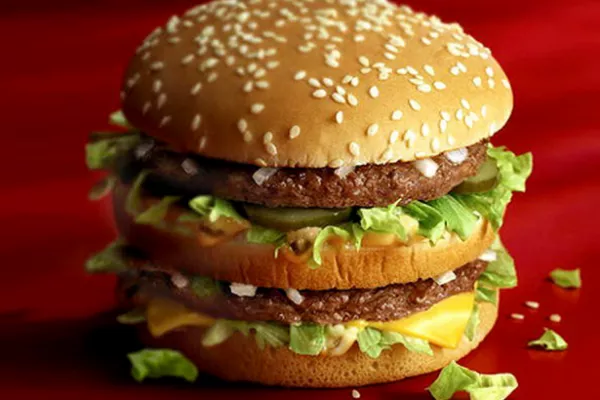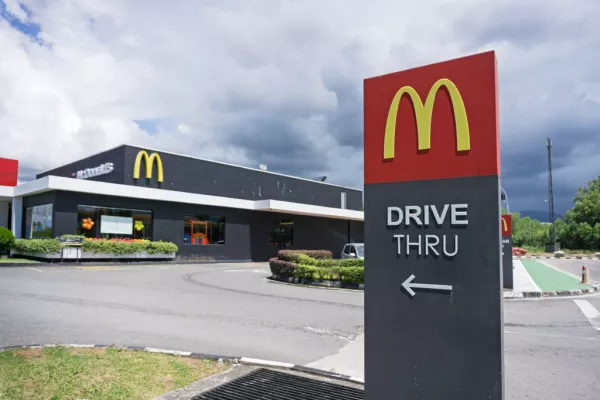In the latest sign yet that US restaurants are bracing for a severe slowdown, McDonald's admitted Tuesday that, at least in the short-term, it's not expecting much sales growth. Instead, it's going to fight for market share by trying to lure fast-food customers away from competitors.
It's a pretty telling admission from the world's largest fast-food chain, but a realistic one.
McDonald's shares fell 5 percent on Tuesday after it reported quarterly sales growth that fell short of Wall Street estimates.
McDonald's shares had risen by 32 percent in the past year before Tuesday's fall, as investors bought into early signs an aggressive turnaround plan was succeeding. The restaurant chain's all-day breakfast boosted sales. Efforts to sell more restaurants to franchisees rather than have the company run them bode well for profitability.
In the US, a seven-quarter streak of falling sales finally ended last year.
But in the most recent quarter, sales growth came in at just 1.8 percent from a year earlier -- a slowdown from the 5 percent-plus gains in the previous two quarters. It's encouraging that McDonald's acknowledges it is now going to have to fight harder for each sale.
As I pointed out earlier this month, the outsize growth experienced by restaurants in the past couple of years seems to be approaching its peak.
Prices at grocery stores are coming down, just as they are rising at restaurants. U.S. politics and global terror attacks are worrying consumers, who are pulling back on spending. Stifel restaurant analyst Paul Westra on Tuesday called it the start of a U.S. restaurant recession.
Though McDonald's quarterly results spooked investors, who are only now coming to terms with a restaurant slowdown, its sales growth topped many competitors. Yum Brands, for instance, posted a revenue drop in the latest quarter, with sales at established Taco Bell locations falling by 1 percent from the year before.
It's important McDonald's stick to its plan to transform the company. Shifting more locations to franchisees, improving food quality, and continuing to invent new menu items that resonate with restaurant-goers will set up the company for long-term growth.
At the same time, McDonald's also needs to play a good short game, too, staying in the good graces of customers recently attracted by its successful all-day-breakfast rollout.
It can do that by keeping up with its competitors on pricing, cementing itself as the price leader among the crop of fast-food joints. That tactic helped McDonald's sales sizzle in the 2008 recession, while pruning costs kept franchisees profitable and happy.
It will also have to work even harder to ramp up its technology offerings around the world, including mobile ordering -- because if consumers spend less at restaurants, then McDonald's will need to be not just the cheapest place to eat, but the fastest.
Slowing sales bode poorly for any restaurant chain, not to mention the U.S. economy. But broad industry weakness might provide an opportunity for McDonald's to pressure weaker competitors and gain market share. Executives at the Golden Arches are being practical and thinking about the long game. Investors should, too.
News by Bloomberg, edited by Hospitality Ireland. This column does not necessarily reflect the opinion of Bloomberg LP and its owners.









